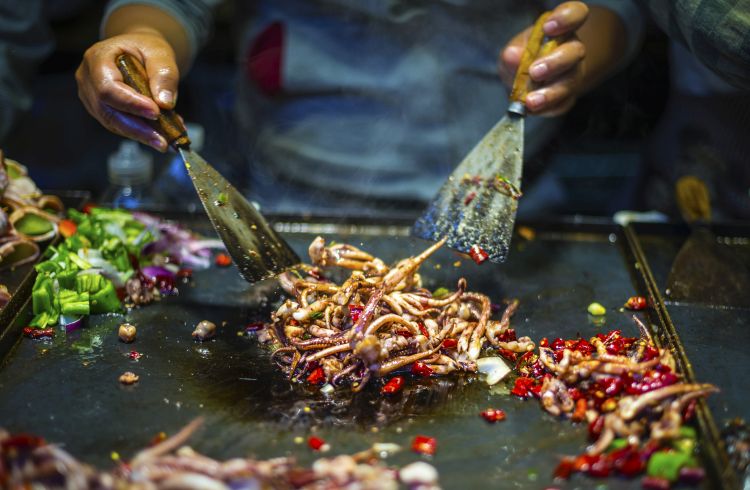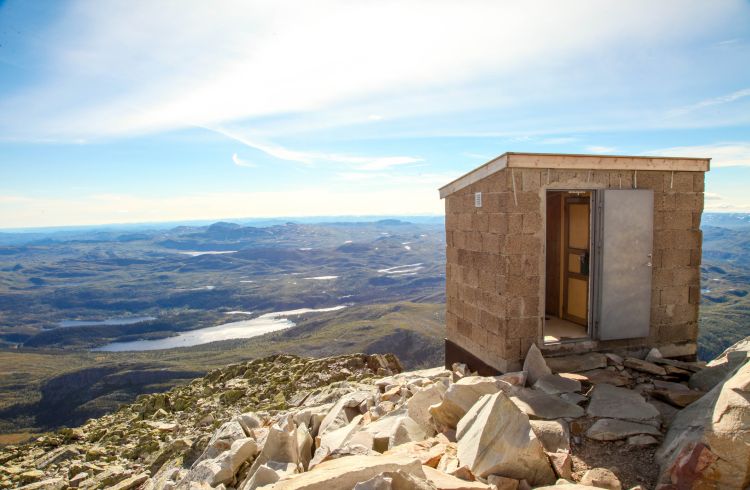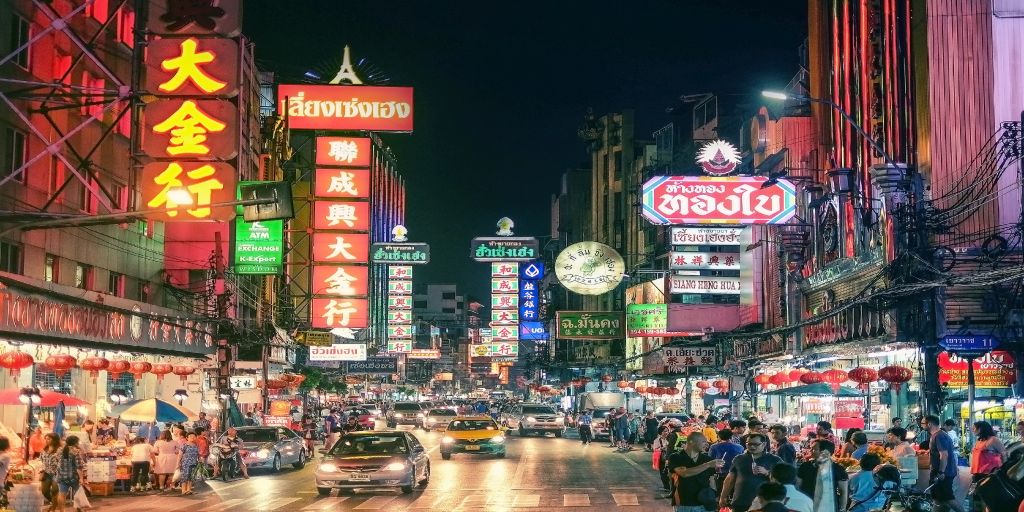5 Essential Tips to Eat Street Food Safely and Stay Well
When you are traveling around, you want to try as much food as possible. You want to eat the local cuisine and dine at street carts. Nomadic Matt shares his top 5 tips to avoid getting sick on the road.
 Photo © Getty Images/aphotostory
Photo © Getty Images/aphotostory
But in our desire to try new dishes, it’s important that we practice good food safety, otherwise you end up like me in the hospital for days...
Nomadic Matt's experience
It was our last night. After two weeks of traveling around Costa Rica together, our tour was ending and tomorrow, we would be heading back to San Jose to catch our flights home. But tonight, the tour group was just enjoying each other’s company, watching the sunset over the beach, and eating sushi (one of the only sushi restaurants in Costa Rica). It was a delicious last meal.
It wasn’t until I was on my way home that I felt something amiss. At first, I thought the pain was related to the bad airline food I was eating. Then over the weeks, the intestinal pains got worse. I always ached. Going to the toilet was difficult. I’d never had food poisoning before. I didn’t want to expect or what the cause could be. But one night, the pain was so bad, I made my roommate drive me to the emergency room. By this time, I knew something was wrong….really wrong.
After a few tests, the results came back. I had a stomach parasite that was inflaming my lower intestine. I’d need to be in the hospital for a few days so they could determine the type of parasite and give me the appropriate medicines. I spent the next three days in the hospital on IV fluids and painkillers. I lost over 10 pounds during my illness.
No one else got sick. Just me. Why I thought? It must have been the eel I ate. Eel is always cooked because if prepared wrong, it makes you very, very sick. It made me sick. It was my fault for ordering a dish in a destination not known for eel or sushi.
Tips for avoiding food poisoning
Many parts of the world don’t always practice good food safety. Here are some good tips for staying healthy:
1. Wash your hands
One way to stay healthy is to always make sure you wash your hands before and after a meal. Honestly, this is the easiest and best way to avoid getting sick on the road. If there isn't clean water and soap available, make sure you have an antibacterial hand wash with you.
2. Eat where the locals eat
If the locals are eating there, it’s going to be good. Locals don’t eat at places that are bad or unclean. This is especially true at street stalls in developing countries. If you go to a place and hardly anyone is there or it’s just filled with foreigners, go somewhere else. The locals are staying away from it for a reason. That reason could just be bad food but no need to risk it.
3. Watch the street food
Eating at street food is a time-honored tradition in many parts of the travel trail like Southeast Asia, India, China, or South America. Eating street food is delicious. Most of my best meals have been from street vendors. However, street food can be risky. I got sick twice off of street food in Asia.
Check out the vendor before ordering. Are they cooking to order and can you see them cook the dish? Often you will see food stalls with prepared dishes buffet style and uncovered, but how long have they been sitting there? Good places will have a limited menu (some will even just specialize in one dish e.g. noodle soup), so food turnover is generally higher. Is their stall clean? Are the ingredients stored separately?
4. Don’t eat non-local food
I was foolish for eating eel in Costa Rica. If there is something strange and exotic but not local, skip it. Locals might not have the right knowledge or skill level to prepare that meal properly. Go with the exotic local food instead - you’ll win there.
5. Make sure your food is properly cooked
Another simple suggestion but one that goes a long way to ensure safety. It was because of poorly cooked eel I got sick. Don’t eat any meats or vegetables that aren’t cooked properly. In many parts of the world, food isn’t refrigerated properly and the meat sits out for most of the day. Always get the meat cooked a little extra just to be safe. Even consider becoming vego while you travel if the idea of eating street stall meat is something you are struggling with. Many places in Southeast Asia and India do have amazing vegetarian dishes.
Food safety on the road is a combination of common sense and watching the local habits. If you want to avoid my mistake and not end up in a hospital for a few days, practice common sense and good hygiene while choosing where you eat. Getting food poisoning on the road is worse than any cold or flu. Stay sanitary, stay healthy.
Behind the Backpack
Matthew Kepnes has been traveling around the world for the past four years. He runs the award-winning budget travel site, Nomadic Matt. He has been featured in The New York Times, The Guardian UK, and Yahoo! Finance. For more information, subscribe to his blog.
Related articles
Simple and flexible travel insurance
You can buy at home or while traveling, and claim online from anywhere in the world. With 150+ adventure activities covered and 24/7 emergency assistance.
Get a quote

No Comments